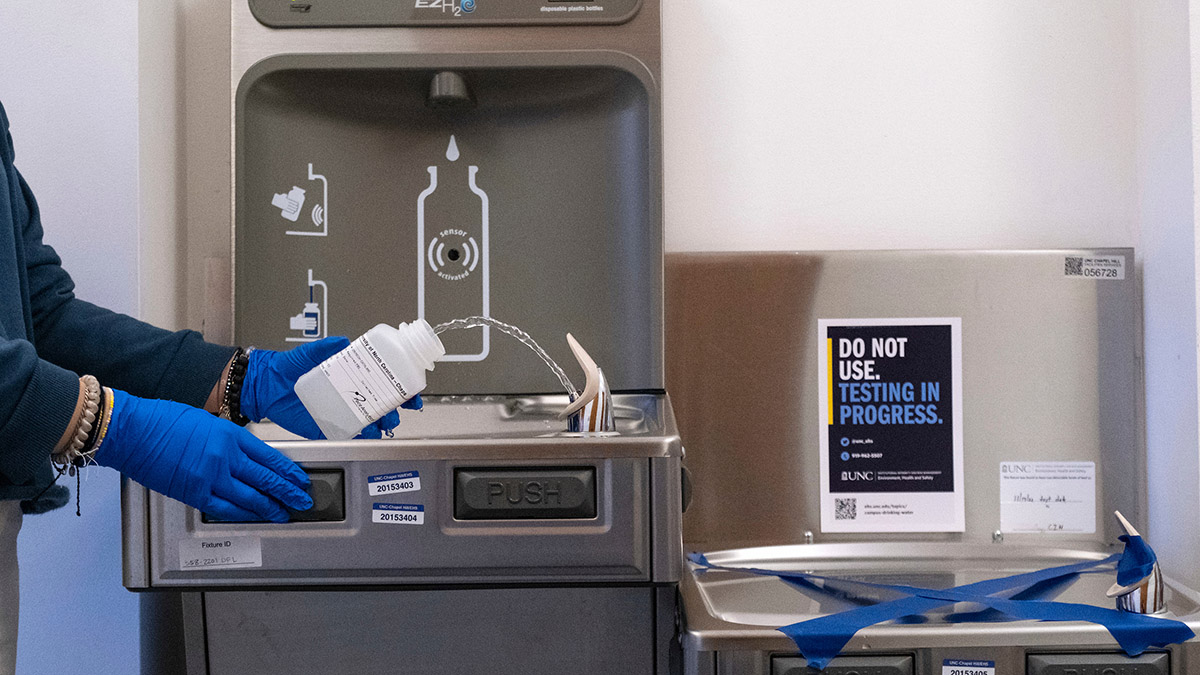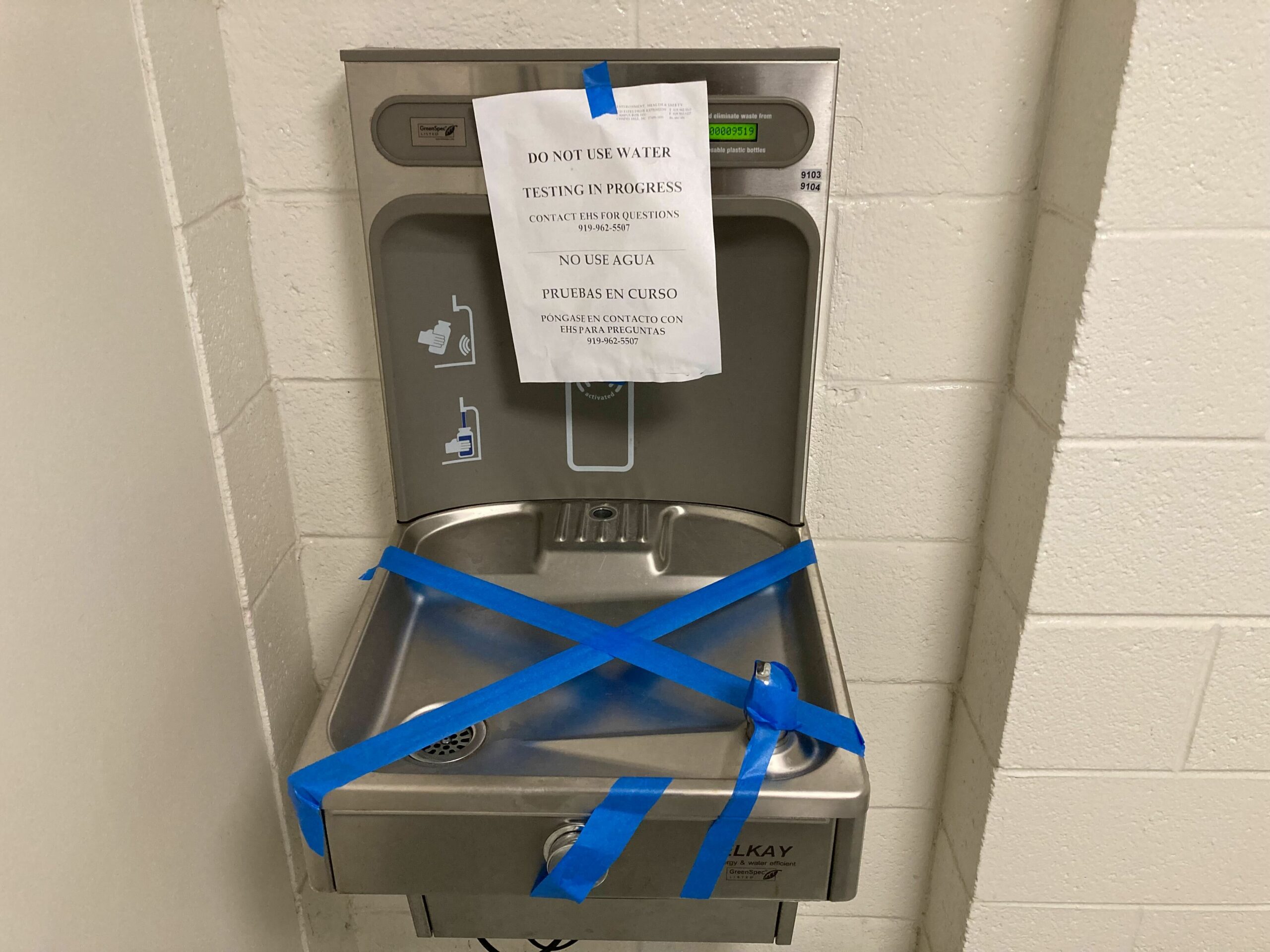As UNC continues its sampling and testing of water across campus following the discovery of detectable lead levels, a new batch of results was shared on Thursday and added seven more buildings to its ongoing list.
The university’s Environment, Health and Safety department said that Kenan Stadium, the Taylor Campus Health Building, the Ackland Art Museum are among the latest buildings to return tests with at least one fixture having the toxic chemical. Water samples from Old West Residence Hall, Mitchell Hall, Sitterson Hall and the Coates Building on East Franklin Street also saw at least partial presence of lead.
Kenan Stadium led the group with the most water fixtures experiencing traces of the chemical, with 20 sinks and four drinking fountains reported after initial testing. Most of the sinks are listed as kitchen or side sinks in specific rooms, while one is in the Rams Club Section A and another is in the South Koury Box. The football stadium is the first athletics facility to return tests with a presence of lead so far.
Mitchell Hall, which holds space for the geological sciences department, saw samples from 13 sinks fail to return clean levels — the second-most fixtures with lead from Thursday’s release of results.
Continuing with how the university has responded to the ongoing testing and examination of its water quality, the affected sinks and fountains will be taken out of service until the cause of the lead is identified and repairs are complete.
The discovery of lead happened in August, after a student project found lead in water samples. Since then, the UNC Environment, Health and Safety department has started canvassing all drinking water fixtures across campus to test for the toxic metal. As of Friday morning, 34 buildings have had some fixtures taken out of service and testing for buildings constructed during or after 1990 is underway.
Both federal and UNC environmental health experts say it takes a significant amount of lead to be ingested over time in order to experience health problems. UNC researchers aiding the testing, however, acknowledge that there is no safe exposure to the toxic metal in water and that each individual can be affected differently by their exposure levels.
The university is providing faculty, staff and students who are concerned about lead exposure appointments to free blood lead level testing. UNC employees are encouraged to contact the University Employee Occupational Health Clinic, while students and post-doctoral fellows should call Campus Health.
For more details and full alerts to the UNC campus community about lead contamination, visit the dedicated web page on the Environment, Health and Safety department’s website. To search through all conducted tests, visit this UNC web page.
Chapelboro.com does not charge subscription fees, and you can directly support our efforts in local journalism here. Want more of what you see on Chapelboro? Let us bring free local news and community information to you by signing up for our biweekly newsletter.






Comments on Chapelboro are moderated according to our Community Guidelines